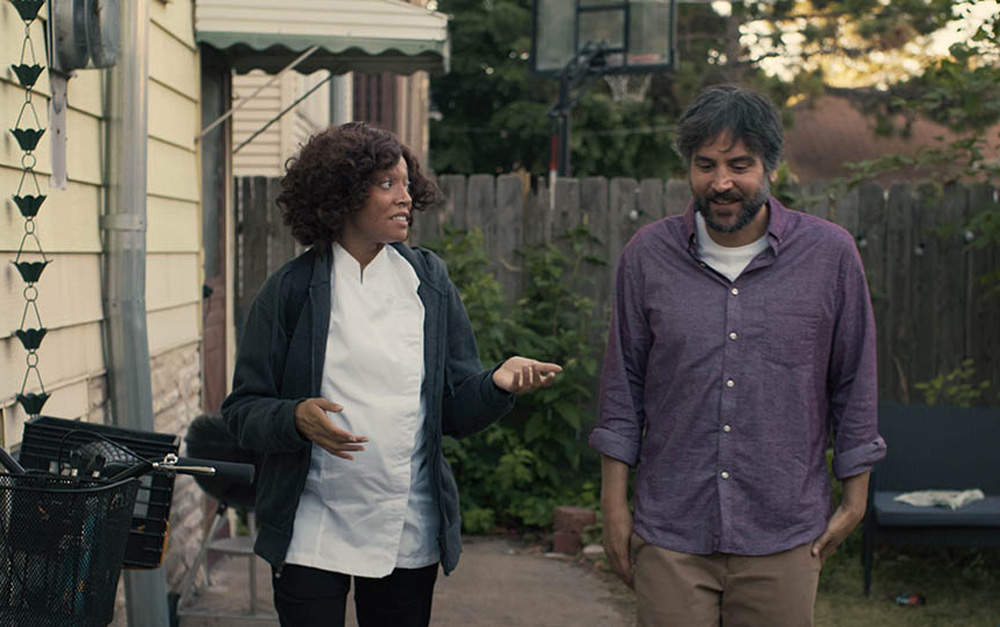Graham Landry (Josh Radnor) could use some good news when some arrives at his door in “All Happy Families,” having to be careful not to look too overjoyed when welcoming in Dana (Chandra Russell), a former drama major like himself in college who unlike him gave up a dream of a life on stage to instead pursue the culinary arts. The two haven’t crossed paths since then and would have no reason to now – Graham can’t barely afford to dine out in his hometown of Chicago, let alone a restaurant like Dana works in – but he’s offering up the lower half of his duplex that’s been in his family for years at a cost that can’t be beat in the city and even with questionable plumbing, Dana shows up as an interested prospective tenant, unaware that Graham would be her landlord, but falling into the easy rapport they had back in college. However, as with nearly everything else in Haroula Rose’s charming and mischievous comedy, even the possibility of something going right for Graham comes with the concern that it could also go horribly wrong when he has to wonder whether leasing the apartment to her might get uncomfortable when there are some signs of a potential romance.
It’s probably for the best that an imagined relationship with Dana drifts towards the bottom of Graham’s concerns once his parents Sue (Becky Ann Baker) and Roy (John Ashton) arrive to clear the house out of their things and his older brother Will (Rob Huebel) unexpectedly pops by as the owner of the home, able to buy it outright as a series regular on a TV series shot in L.A. that mostly keeps him out of town. Graham should be happy for Will’s success when it’s kept a roof over his head, but it only reminds him of his own inability to get steady work as an actor. Having the whole family come over to help with a transition he should be able to oversee by himself starts to gnaw at him, but then again, he’s hardly alone in suffering in silence as Sue, who should be riding high after bidding adieu to a 32-year career with plans to vacation in Venice, is afraid to mention to anyone that she was groped by her boss at the retirement party or the fact she’s not necessarily in the mood to travel abroad, and Roy hasn’t told her that he’s gotten back into casual gambling and has needed help paying off his debts from Will, who looks like he may start having issues paying them when he’s the subject of an HR situation at work. A few simple and honest conversations might clear the air, but Rose and co-writer Coburn Goss are all too aware that’s there’s hardly any fun in that.
With a script smart and nuanced enough not to question why it’s harder to speak frankly with one another than to sit and stew, the film captures the toll of imagining outcomes far worse than what the reality would likely be. “All Happy Families” may not be the first to find torture as a curious expression of love, but having characters who would rather do right by one another than what’s in their own best interests without resorting to grand gestures is rare and while the film catches the Landrys at a particularly chaotic moment, it’s a pleasure to spend time with them agonizing over how to break the bad news to one another. Despite the drama, Rose gives the film a laid back charm, throwing in a Rodney Crowell performance for the hell of it and with an ensemble of old pros, nothing ever feels forced even as complications mount. There may not be truth in the advertising of “All Happy Families,” but it nonetheless feels as honest as it gets.
“All Happy Families” will screen again at the Chicago Film Festival on October 13th at 5:45 pm at the Siskel Center, Screen 1.




